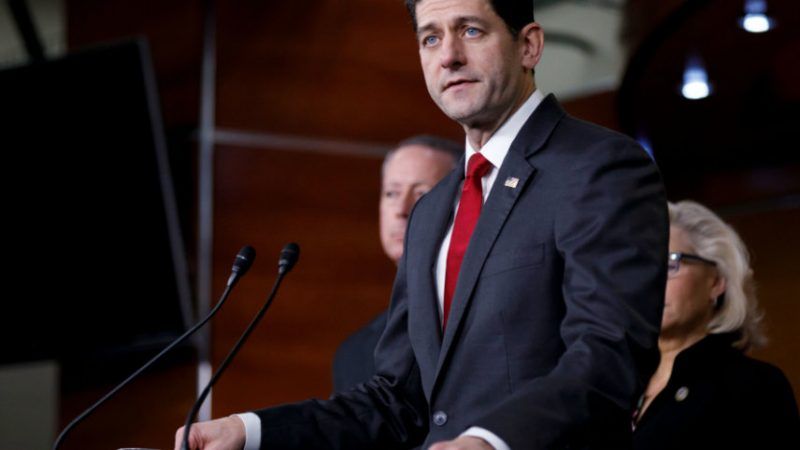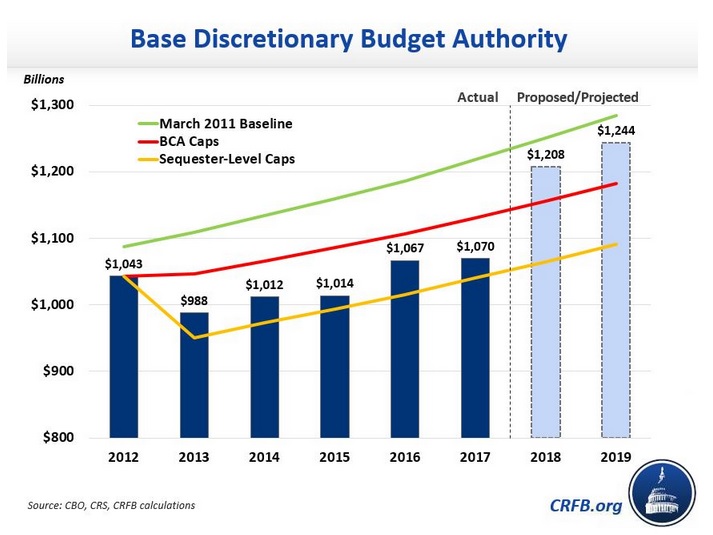Please Enjoy These Videos of Paul Ryan Being Concerned About Debt and Overspending
"The real problem is that we spend way more money than we take in. We have to address that."

Apropos of nothing in particular, here's a video of then–House Budget Committee Chairman Paul Ryan (R-Wisc.) praising a bipartisan agreement to place limits on federal spending:
That was in 2011. Ryan was pumped about a "huge cultural change" for Congress, which for years had ignored soaring deficits but now had passed the Budget Control Act, which capped future spending on the military and discretionary programs. Neither party was particularly happy with the agreement, but to Ryan that was a good thing, because it meant everyone had to take some medicine. "Both parties got us in this mess," he said. "Both parties are going to have to work together to get us out of this mess."
"The real problem is the fact that we spend way more money than we take in," he noted. "We have to address that."
Fast-forward to 2018. Ryan is now Speaker of the House, a position from which he could, in fact, address that. The economy is humming along, unemployment is low, and he just helped pass a tax reform package that Republicans have been clamoring after for the better part of two decades. Time to trim some more fat, work on balancing the budget, and maybe even take a whack at solving the impossible problem of entitlement reform, right?
Nah. Instead, the onetime budget hawk presided over the pre-dawn passage of a budget bill that makes mincemeat of the very spending caps Ryan championed seven years ago. The budget will grow government spending by about $400 billion this year, and it includes an $165 billion boost for the Pentagon over the next two years. (The latter increase is driven almost entirely by Republicans' gut feeling that the military is underfunded; there is still no completed Pentagon audit.) The new budget will add an estimated $1.7 trillion to the federal debt in the next decade and will cause the Treasury to run a trillion-dollar deficit every year for the foreseeable future, according to a nonpartisan analysis from the Committee for a Responsible Federal Budget.

The red line on the chart above is the spending cap that Ryan was cheering in 2011. The two light blue columns on the right are the spending plan that Ryan just shepherded to President Donald Trump's desk without so much as a hint of concern about spending "way more money than we take in."
It's no surprise to see politicians change their agendas over time, particularly after moving from the minority to the majority. But Ryan's transformation from a budget-conscious Dr. Jekyll to a debt-junkie Mr. Hyde is uniquely remarkable.
"If you were against President Obama's deficits, and now you're for the Republican deficits, isn't that the very definition of hypocrisy?" asked Sen. Rand Paul (R-Ky.) during his valiant-but-futile effort to hold up the budget bill in the Senate last night. And what if "you" literally made your name in Congress by drafting alternative federal budgets during the Obama years that aimed to bring some measure of balance to the budget? It was a flawed plan, but it was a plan. Now "you're for" a budget bill that annihilates years of difficult work that achieved modest budgetary gains, one that piles up trillions of dollars of new borrowing to be paid by future generations of Americans. What would we call that?
I don't know, but it's what we should start calling Paul Ryan.
Here's a bonus video of Ryan in July 2011 issuing a dire warning about the country's future:
"We are driving our country and our economy off of a cliff," he said. "The reason is that we are spending so much more money than we have. We can't keep spending money we don't have."
Yes. That's exactly the problem. And you just made it worse.


Show Comments (26)